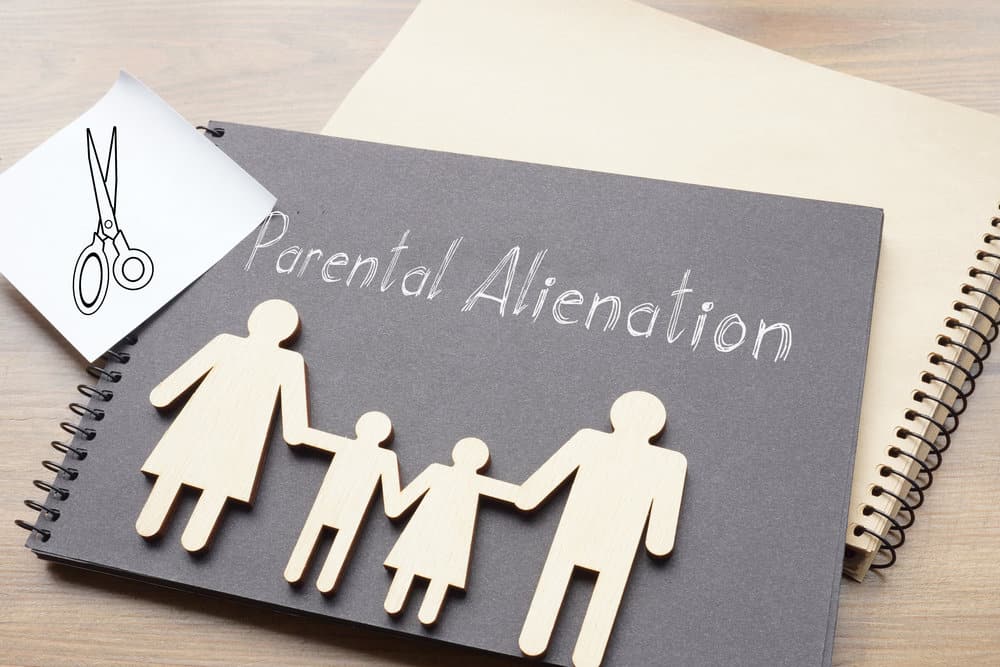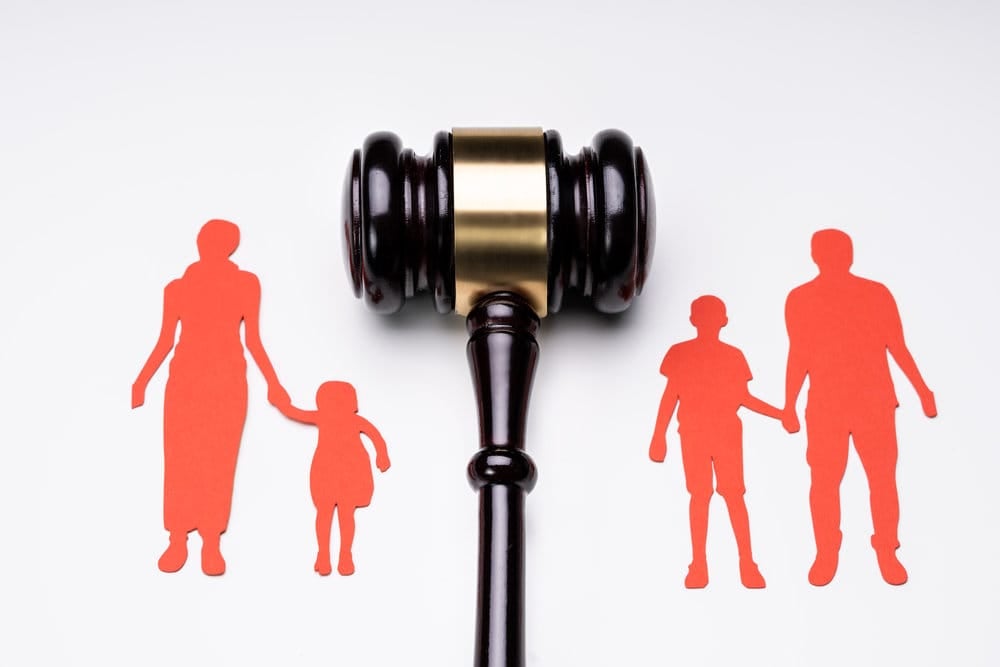Co-parenting is working with an ex-spouse or partner to raise your children post-separation or divorce. A successful co-parenting arrangement requires open communication, mutual respect, and a focus on the well-being of the children involved. Unfortunately, not all parental relationships can maintain this level of cooperation, leading to questions of whether an inability to co-parent effectively can result in loss of custody.
In many jurisdictions, family courts prioritize the child’s best interests, including their need for stability, emotional support, and access to both parents. When one parent is obstructive or uncooperative in the co-parenting process, it raises concern for the child’s welfare, and courts may intervene to modify custody arrangements. However, loss of custody is not automatic; it will depend on several factors, such as the issue’s severity and the case’s specific circumstances.
Key Takeaways
- Co-parenting requires cooperation for the child’s best interest.
- Courts may modify custody arrangements if one parent is uncooperative.
- The decision to alter custody is based on the specific circumstances and the child’s welfare.
Understanding Co-Parenting
Co-parenting refers to working collaboratively with an ex-spouse or partner to ensure the well-being and needs of a shared child are met. The primary goal of effective co-parenting is to provide a stable and nurturing environment for the child, despite the challenges that may arise due to separation or divorce.
Successful co-parenting requires clear communication, mutual respect, and the ability to set aside personal differences for the child’s sake. In cases where parental disagreements or unresolved conflicts escalate, it can hurt the child’s emotional and psychological well-being.
There are several essential elements of good co-parenting, including:
- Consistency in rules, discipline, and routines across both households provides a sense of stability and predictability for the child.
- Flexibility in parenting and time-sharing, acknowledging that circumstances can change and necessitate adjustments to the arrangement.
- Communication between parents to keep each other informed about the child’s needs, progress, and challenges enables a coordinated and effective approach to parenting.
Maintaining a successful co-parenting relationship can be challenging, especially if there is a history of conflict or mistrust between the parents. However, prioritizing the well-being of the shared child through consistently working together to meet their needs can lead to positive outcomes for all parties involved.
Reasons for Losing Custody
Abuse and Neglect
Abuse and neglect of children may result in the loss of custody. Child abuse can manifest in various forms, such as physical, emotional, and psychological. Neglect occurs when a parent doesn’t meet their child’s basic needs, compromising their well-being. A history of abuse or neglect, proven through legal channels or evidence, can severely impact a parent’s chances of retaining custody.
Substance Abuse
Substance abuse can also lead to losing custody of a child. A parent with a history of drug addiction or alcoholism may be seen as unfit to provide a stable, nurturing environment. Courts take this issue seriously, as substance abuse can affect a child’s safety and well-being. Parents with substance abuse histories may undergo mandatory therapy, rehabilitation, and enforced monitoring to maintain visitation or custody rights.
Domestic Violence
Domestic violence significantly threatens a child’s emotional and physical well-being. Courts recognize that children in households with domestic violence are at a higher risk of experiencing abuse. If a history of domestic violence exists, the court may consider various factors, such as restraining orders, police reports, and witness testimonies. The presence of domestic violence often results in the loss of custody or supervised visitation for the abusive parent.
Parental Alienation
Parental alienation is when one parent manipulates a child or creates a hostile environment against the other parent. This malicious behavior harms the child’s mental health and can damage the parent-child relationship. Courts may view this act as psychological abuse, resulting in the offending parent losing custody. Parents must remain neutral and supportive of the child’s relationship with the other parent, as fostering negativity can have lasting consequences.
Family Law and Court Processes
Family law plays a significant role in dealing with issues related to child custody. In a custody case, the courts aim to make custody decisions in the child’s best interest. To do this, they consider various factors, such as the parent’s ability to co-parent, the child’s needs, and the relationship between the child and each parent.
Joint legal custody is often the preferred arrangement, as it allows both parents to make important decisions for the child actively. However, in some situations, sole legal custody may be awarded to one parent, with the other being granted supervised visitation.
Court orders are crucial in defining the custody arrangement to be followed by the parents. These orders outline the terms both parties must adhere to, including visitation schedules, exchange locations, and communication guidelines. Any violation of these court orders can lead to legal consequences.
In many cases, the courts will order a custody evaluation, an assessment conducted by a mental health professional or an impartial evaluator to help determine the best custody arrangement for the child. This evaluation might include interviews with the parents and child, home visits, and a review of relevant documents, such as school records and medical reports.
The courts may also mandate family counseling when co-parenting issues hinder the child’s best interests. Counseling can help parents work through their conflicts and improve communication skills, ultimately benefiting the child’s well-being.
Failure to co-parent effectively can have a significant impact on a custody case. A parent who neglects their responsibility to co-parent can risk losing custody or having their custody rights reduced. Courts can modify the existing custody order, granting the cooperative parent more control over decision-making or even sole legal custody in severe cases.
In summary, family law and court processes are integral in determining the appropriate custody arrangements for a child. The courts consider many factors, with the child’s best interest being the top priority. Parents who do not co-parent effectively risk losing their custody rights, making it essential for both parties to cooperate and communicate for the sake of their child.
Child Support and Parental Rights
Child support and parental rights are essential for co-parenting, particularly in joint custody arrangements. Parents have legal obligations to support their children financially. Failing to meet these responsibilities may result in losing certain parental rights.
Both parents often share joint custody, meaning they have equal rights and responsibilities toward the child. However, if one parent fails to co-parent effectively, it can lead to modifying the custody arrangement. A guardian ad litem, appointed by the court, may be involved in evaluating the child’s best interests, including the parenting capabilities of both parents.
Regarding child support, non-payment or irregular payments can lead to severe consequences. Courts take child support obligations seriously, and parents who do not meet these requirements may face legal penalties, including losing custody or visitation rights. In some cases, delinquent child support payments may also be taken directly from the non-paying parent’s wages through wage garnishments.
On the other hand, it is essential to understand that child support and parental rights are separate entities. Even if a parent falls behind on child support, they still have a right to maintain a relationship with their child unless specific circumstances, such as endangering the child or court order, restrict them.
Parents should know that paying child support does not guarantee parental rights. Proper co-parenting involves open communication, collaboration, and cooperation in raising the child. If one parent neglects their responsibility to co-parent, it may negatively impact their parental rights.
A court may decide to modify custody arrangements if they find that one parent is not co-parenting effectively, causing harm to the child’s well-being. Factors that may lead to a modification include refusing to communicate with the other parent, making unilateral decisions about the child’s care, or alienating the child from the other parent.
In summary, while child support is essential to co-parenting, it is not the only factor affecting parental rights. Parents are encouraged to maintain open communication and cooperation and focus on the child’s best interests. Ultimately, the court has the final say in custody arrangements and preserving parental rights.
Navigating Co-Parenting Challenges
Mental Health
Co-parenting can be challenging, especially when dealing with mental health issues such as anxiety or depression. In these situations, both parents must prioritize their mental well-being and seek appropriate support to care for their children effectively. This may involve therapy, medication, or self-care practices. Maintaining consistent discipline and a stable environment for the children is essential, as this is in their best interests during and after the divorce.
When dealing with an abusive partner, it’s crucial to establish a clear parenting plan to minimize conflict. This plan should outline the responsibilities and expectations of each parent, such as major decisions and effective communication strategies. Establishing a plan can help lessen the resentment, bitterness, and anger that may arise during co-parenting.
Relationship Issues
Co-parenting can also be complicated by relationship issues between the parents, such as unresolved feelings, badmouthing, and ongoing conflict. To navigate these challenges, striving for a peaceful and cooperative partnership is important. This means setting boundaries, focusing on the needs of the children, and communicating effectively with the other parent.
If a parent abdicates their responsibilities or acts irresponsibly, it is crucial to document these behaviors as they can impact the co-parenting process. It’s also important to be mindful of the potential for child abduction, ensuring that both parents know the children’s whereabouts and activities.
In cases where co-parenting problems persist or cause significant harm to the children, pursuing full custody may be necessary. This decision should not be taken lightly and should only be considered when there is clear evidence that the current co-parenting situation is not in the children’s best interests.
Establishing a Successful Co-Parenting Schedule
A successful co-parenting schedule is crucial for ensuring the well-being and stability of the child involved. It lays the foundation for a cooperative relationship between parents and addresses essential factors, such as visitation, education, health care, and security.
To create a suitable co-parenting schedule, both parents must collaborate and set aside their differences. They should prioritize their child’s best interests and consider factors like proximity to schools and medical facilities, work schedules, and availability of quality time with both parents.
Visitation is vital to the co-parenting schedule, ensuring the child maintains a meaningful relationship with both parents. Parents should negotiate visitation arrangements that accommodate the child’s needs, extracurricular activities, and special events or holidays. Regular communication is essential for keeping both parties informed and making necessary adjustments.
Education is another critical entity in a co-parenting schedule. Both parents should discuss and agree upon their child’s educational needs, the choice of schools, and participation in extracurricular activities. This cooperation ensures consistency and stability, contributing to the child’s academic success and personal growth.
Health care is an area that needs particular attention in a co-parenting schedule. Both parents must have access to crucial medical information, input on treatment decisions, and share responsibility for the child’s medical expenses. Developing a plan for managing emergencies, regular check-ups, and addressing special healthcare needs is essential for the child’s well-being.
Security is fundamental for the child’s emotional and physical safety. A co-parenting plan should incorporate provisions for the child’s living arrangements, with both parents creating a stable and nurturing home environment. Additionally, discussing and setting boundaries for discipline and guidelines on potential social and internet restrictions can better protect the child.
In conclusion, an effective co-parenting schedule should encompass visitation, education, health care, and security arrangements that cater to the child’s best interests. Collaboration, communication, and a shared commitment to nurturing a strong relationship with the child are the keys to a thriving co-parenting arrangement.






